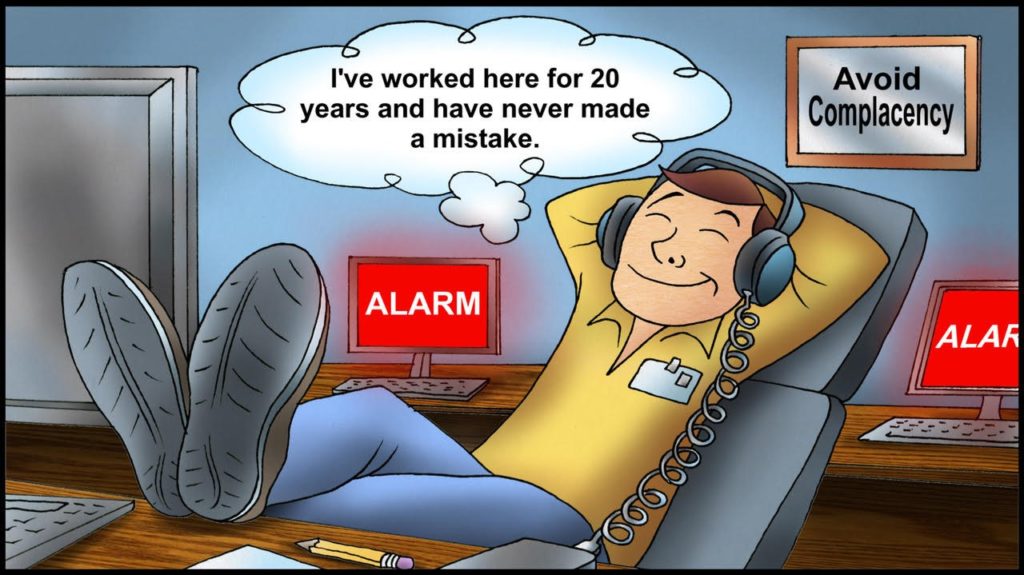Complacency is more likely to occur when we stop being afraid of doing something. I am not saying we have to be paralyzed with fear, but we should have a healthy respect for known and unknown hazards in our work and in our lives. Think about your first day on the job, the first shift you worked alone, the first time you drove a car, the first time you asked someone for a date, or the first time you heard about COVID-19. I suspect you did more thinking about the risks and ways to reduce those risks and to address problems.
One way to define complacency is “contentment or self-satisfaction, combined with a decreased sense of risk and less anticipation of possible problems.” If you read job postings for controllers, the requirements indicate that one must avoid complacency. Consider how complacency might affect these abilities:
- Perform detailed, regimented tasks and sustain concentration under stressful situations.
- Ability to think quickly and timely to make quick decisions in critical situations.
- Ability to focus attention on details and follow work rules.
When people first complete their training as a controller (or for other positions), complacency is not a problem. Eventually, three factors might contribute to complacency:
- Repetitions – “I’ve done this same task a thousand times.”
- Confidence – “I am really great at my job and always perform well.”
- Experience – “I’ve been doing this job many years. I’m an expert.”
A tendency toward complacency is largely a personal issue, but it can have organizational consequences. Organizations need to emphasize human capabilities and limitations through a human factors error management program so that individuals know the effects of complacency and ways to mitigate those effects.
Some effects of complacency are listed below. Which ones have you exhibited?
- Letting your mind wander and thinking about other things.
- Taking shortcuts and omitting steps.
- Thinking that everything will work perfectly every time.
- Performing a task without using the procedures or recommended personal protective equipment.
- Not verifying your work.
- Working exclusively from memory, as opposed to actively paying attention.
Since complacency is an individual issue, individuals have to learn ways to avoid this Filthy Fifteen Factor. A few are listed below:
- Learn and follow policies and procedures.
- Practice “what if” thinking and maintain a questioning attitude.
- Always perform a simple risk assessment, yes always!
- Use the STAR technique (Stop, Think, Act. Review).
- Always check your work or ask someone to check it.
- Do not be content with your knowledge; continually train and review lessons from errors and near misses.
- Have a healthy self-confidence, but do not get the big head.
- Recognize that “It can’t happen to me” is a wrong belief.
- Expect success, but plan and prepare in case something fails.
THE FILTHY 15 EDUCATIONAL PROGRAM | Charles Alday © 2020 Please Distribute to Others.




